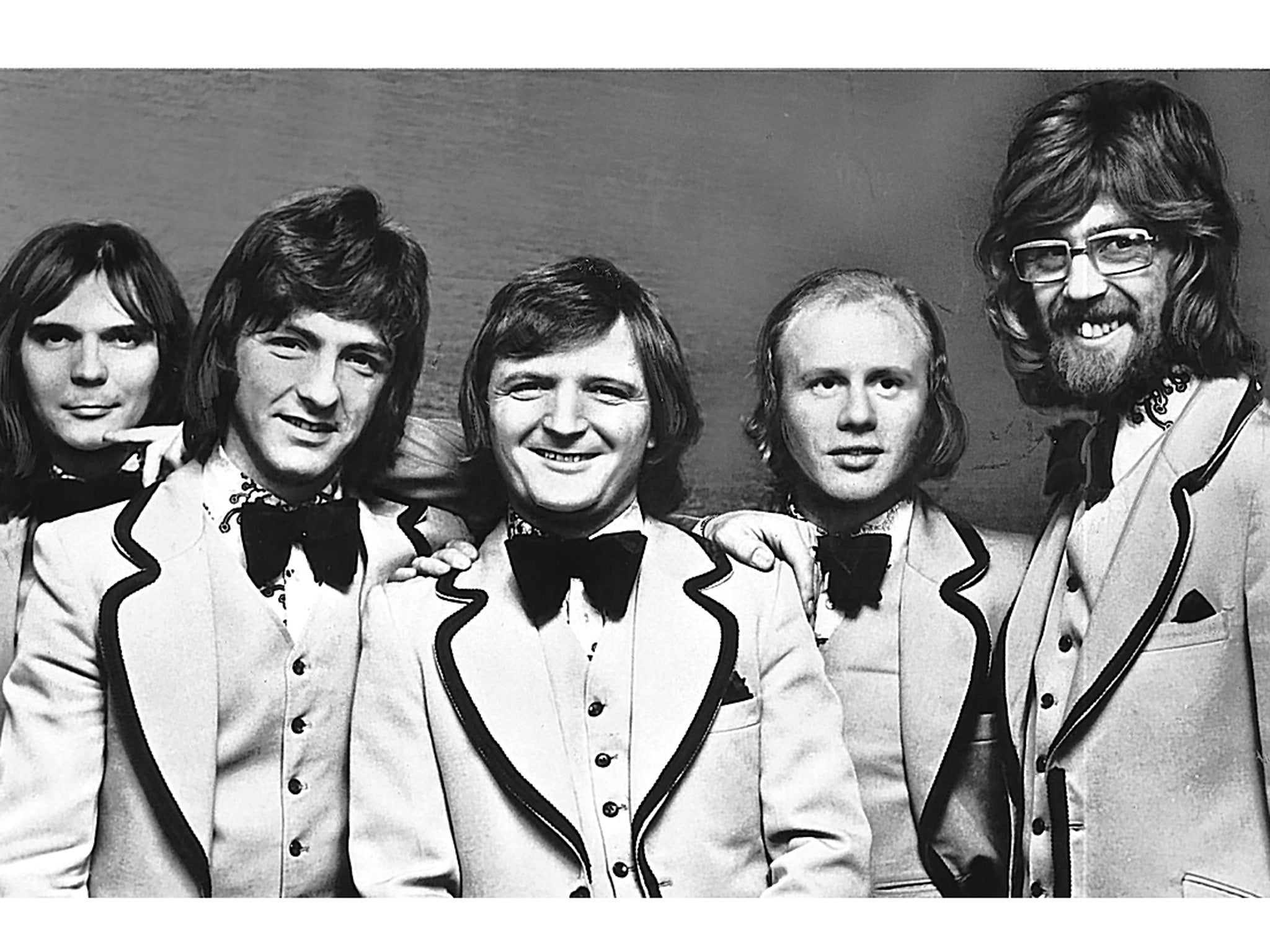Graham Walker: Co-founder of the musical comedy group The Grumbleweeds

Your support helps us to tell the story
From reproductive rights to climate change to Big Tech, The Independent is on the ground when the story is developing. Whether it's investigating the financials of Elon Musk's pro-Trump PAC or producing our latest documentary, 'The A Word', which shines a light on the American women fighting for reproductive rights, we know how important it is to parse out the facts from the messaging.
At such a critical moment in US history, we need reporters on the ground. Your donation allows us to keep sending journalists to speak to both sides of the story.
The Independent is trusted by Americans across the entire political spectrum. And unlike many other quality news outlets, we choose not to lock Americans out of our reporting and analysis with paywalls. We believe quality journalism should be available to everyone, paid for by those who can afford it.
Your support makes all the difference.Graham Walker might have reflected that his music-playing comedy group, The Grumbleweeds, were unfortunate enough to reach their zenith in the dying days of variety. But they still enjoyed a long run on radio and television – the mediums they plundered – largely thanks to their talent for impressions and parody.
Walker was born in Leeds, where his parents, Gilbert and Elsie, ran a butcher's shop. After leaving Meanwood secondary school, he joined the family business and became a master butcher. He and his schoolfriend Maurice Lee were in a coffee bar in 1962 when they were invited to form a pop group by Robin Colvill, who was repairing the jukebox while Lee kept customers entertained with his guitar playing. Lee taught Walker to play bass guitar, Colvill was on drums and they were joined by two brothers, Albert and Carl Sutcliffe.
The Grumbleweeds started out by performing in dance halls, and in 1965 appeared at the Top Ten club in Hamburg a week after The Beatles had played there. Walker slept in the same bed that John Lennon previously occupied and ended up in a police cell one night after getting drunk in public.
The group left their van, with their equipment inside, at the side of a road when it broke down on the journey home. With a three-month wait for it to be recovered, they begged and borrowed instruments and equipment. The Grumbleweeds switched to playing in working men's clubs, but the inferior guitar strings would snap and the drum kit fall apart mid-performance. Walker and Colvill filled in with their impressions of television stars of the time, including Steptoe and Son and Morecambe and Wise.
As a result they made the decision to become a comedy group. Their big break came with an appearance on the television talent show Opportunity Knocks in 1967. Although they came last – beaten by other acts such as an Army display team and a girl doing farmyard impressions – the Blackpool impresario Peter Webster booked them for a run at the town's Central Pier.
When Ken Dodd's manager signed up the group, Walker and the others turned professional, and they presented the BBC children's series The Coal Hole Club (1973) and Grumbleweeds (1974). There were also guest appearances in television variety shows such as The Wheeltappers and Shunters Social Club (1975), Seaside Special (1976, 1979) and London Night Out (1978, 1979).
The group had remarkable success with their own BBC Radio 2 programme, The Grumbleweeds Radio Show (1979-88), which ran for 15 series and won the Television and Radio Industries Award for best radio show in 1983. The group also made a television version under the same name for ITV (1983-85), set in a mocked-up radio studio, before it was retitled The Grumbleweeds Show (1986-88).
Visually, the round-faced, balding Walker was the group's clown-in-chief – although he would often be seen wearing outlandish wigs. As Ken Dodd, he donned false buck teeth and the combination of these props and his skill resulted in a remarkably realistic impression. He was similarly convincing as Frank Spencer, Baldrick from Blackadder, John Inman and Les Dawson.
In 1989, the Sutcliffe brothers left and The Grumbleweeds continued as a trio. Nine years later, when Lee wanted to spend less time touring to be with his family, Walker and Colvill carried on as a duo. The pair never lowered their high standards – and kept updating their act – whether performing in summer seasons or on cruise ships. One of their "modern" parodies was a skit on Little Britain's Andy and Lou, with Walker in a wheelchair as the Matt Lucas character. Pantomime was another natural home for the duo.
From the late 1990s, Walker also had television acting roles. He took one-off character parts in programmes such as Heartbeat (1997), Max & Paddy's Road to Nowhere (2004, as a farmer) and Coronation Street (2011, as the landlord of a one-star Blackpool hotel where Steve McDonald and Tracy and Amy Barlow stayed).
A firm family man, Walker brought up his children on a 20-acre smallholding with goats, hens and sheep, and was firmly involved in community events around Bramhope, on the edge of Leeds, where he lived. He was diagnosed with cancer of the soft palate two years ago and of the oesophagus last year. At the time of his death Walker had just completed filming his role in a forthcoming feature film, Bremner, as a drunken father on a Leeds housing estate who named all his children after Leeds United footballers.
Graham Paul Walker, actor, comedian and musician: born Leeds 17 May 1945; married 1968 Susan Frost (one son, four daughters); died Leeds 2 June 2013.
Join our commenting forum
Join thought-provoking conversations, follow other Independent readers and see their replies
Comments